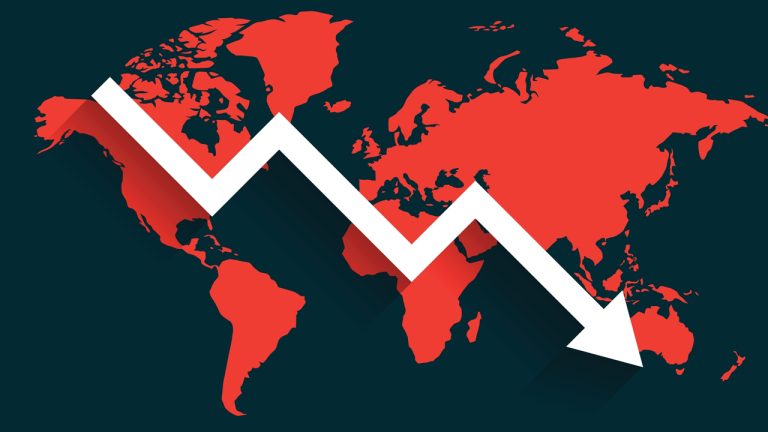
On Jan. 10, 2023, the World Bank published its Global Economic Prospects report, stating that the outlook for the global economy and future economic conditions is bleak. According to the report, 2023 growth forecasts have been cut across the board, with the global economy projected to grow by 1.7% in 2023 and 2.7% in 2024. The World Bank also cited a number of adverse developments that could push the world’s economy into a deep recession.
World Bank Report Urges Action on Climate Change, Increased Investment to Offset Adverse Economic Shocks
The World Bank, the financial organization with 174 member countries, released its Global Economic Prospects report on Tuesday. The report envisions a “sharp, long-lasting slowdown to hit developing countries hard.” The World Bank cites numerous issues plaguing the global economy, including the Covid-19 pandemic and “escalating geopolitical tensions,” as reasons why the world’s economy could spiral into a recession. The report also mentions interest rate hikes by central banks and “higher-than-expected inflation” as contributing factors to the “adverse developments.”
The World Bank’s report further detailed that inflation has dropped to some degree at the end of 2022. It also noted that skyrocketing commodity and energy prices have subsided for the time being. The World Bank warns, however, that global economies will likely still see inflation persist, and supply disruptions could stem from adversities such as the Covid-19 pandemic and the Ukraine-Russia war in Europe. If inflation persists, the World Bank warns that benchmark bank rates could continue to climb in order to curb inflationary pressures.
“Growth in advanced economies is projected to slow from 2.5% in 2022 to 0.5% in 2023. Over the past two decades, slowdowns of this scale have foreshadowed a global recession,” the World Bank’s Global Economic Prospects report details. “In the United States, growth is forecast to fall to 0.5% in 2023—1.9 percentage points below previous forecasts and the weakest performance outside of official recessions since 1970. In 2023, euro-area growth is expected at zero percent—a downward revision of 1.9 percentage points. In China, growth is projected at 4.3% in 2023—0.9 percentage point below previous forecasts.”
The report’s summary concludes that one thing that can help the global economy is by improving “long-term growth prospects by bolstering resilience to climate change.” The World Bank insists that policymakers need to “address climate change and support people affected by crises and hunger.” In order to “offset the long-term damage from the adverse shocks of the past three years,” emerging markets and developing economies will need to “substantially increase investment,” according to the World Bank’s report.
What are your thoughts on the World Bank’s Global Economic Prospects report and its predictions for the global economy? Let us know your thoughts about this subject in the comments section below.






